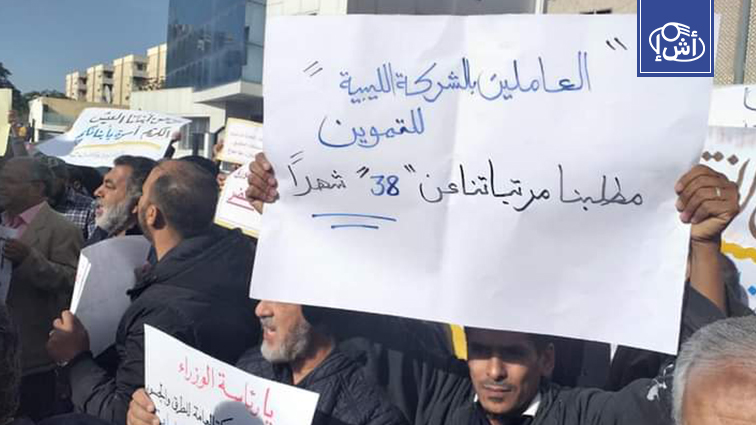The nearly 20,000 workers of troubled and withdrawn companies in Libya have been suffering from non-payment of salaries and entitlements for many years, after their companies collapsed and were severely damaged.
Employees of troubled and withdrawing companies staged a demonstration in front of the prime minister’s office in the capital Tripoli to demand a radical solution to their problems.
In eastern Libya, under the directives of the Commander-in-Chief of the Libyan National Army, Field Marshal Khalifa Haftar, the Libyan government in charge of Osama Hammad announced its approval to disburse 100 million dinars to cover the salaries of troubled and withdrawn companies for a period of six months, based on a proposal submitted by the Ministry of Labor and Rehabilitation, while working to solve the problems of companies.
The head of the General Federation of Libyan Trade Unions, Nermine Al-Sharif, said in press statements that the number of troubled and affected companies exceeded 100 companies, noting that there are companies whose workers have not received any salaries for more than 9 years, and other companies for 6 years, and others for 3 years.
She added: “A fund was established in 2012 to support the salaries of workers withdrawing their companies with a value of up to 450 Libyan dinars, in support of them, knowing that their number did not exceed 5,000 workers, and after the divisions in the country, this support from successive governments was interrupted, the interim government in eastern Libya adopted these grants and did not stop, until the Government of National Unity came in 2021 and stopped the fund, and the suffering returned again, and the committees are still working with credibility and without credibility.”
The Libyan official stressed that most workers do not receive the basic salary, in addition to the absence of bonuses, promotions, medical insurance and occupational safety, and this is not only the suffering of the withdrawn and troubled companies, but also the suffering of most sectors and companies operating in the state, including the oil sector, which is the source of funds.
“Benghazi Summer” Festival celebrates cultural diversity, showcases Russian circus skills (Videos & Photos)
